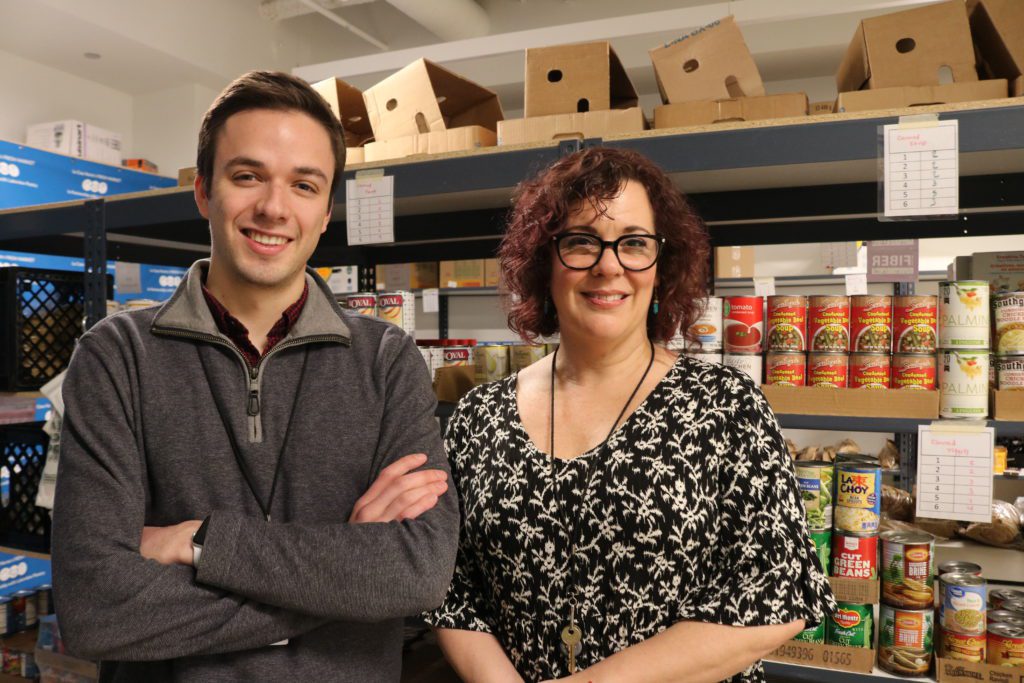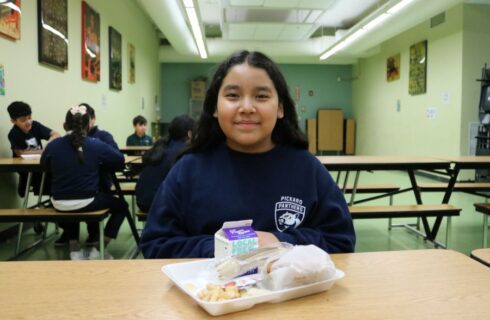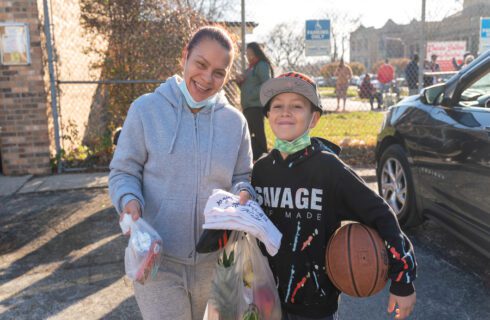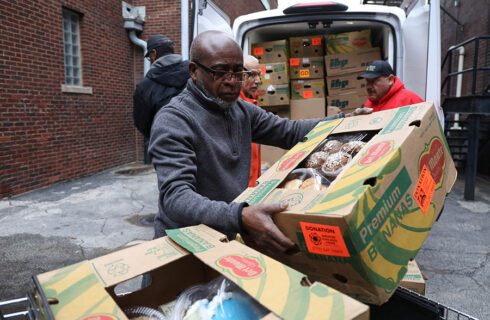Across Chicago, community organizations are counting themselves in for outreach leading up to Census Day on April 1.
The U.S. Census, the national population count that takes place every 10 years, is used to determine adequate funding, resources and congressional representation to serve every resident for the next decade.
For government agencies and service organizations – including the Greater Chicago Food Depository – that receive support through federal programs, resources are allocated based on the populations served. An incorrect count in Cook County, caused by a lack of participation, could drastically diminish how much is made available for community members seeking a wide array of public services. These services range from food assistance to housing.
La Casa Norte, one of the Food Depository’s partners in Census outreach, serves youth and families experiencing homelessness in Humboldt Park and Back of the Yards. Both of those neighborhoods have been deemed “hard-to-count” by the U.S. Census Bureau, meaning that for a variety of reasons residents may be less likely to participate. Part of La Casa Norte’s offerings include a community food pantry and hot meal program, for which it receives support from the Food Depository.

AmeriCorps VISTA member Ryan Maia (left) and La Casa Norte's community engagement coordinator Rebecca Sumner Burgos. Maia and Sumner Burgos are working on the organization's Census outreach efforts.
With hundreds of billions of dollars in federal resources hanging in balance, La Casa Norte wants their guests to know how participating helps secure needed resources for their community.
“We each deserve our fair slice of that pie,” said Ryan Maia, an AmeriCorps VISTA member working at La Casa Norte. Maia is working with community engagement coordinator Rebecca Sumner Burgos to lead the organization’s Census outreach.
The Hunger Beat recently sat down with Sumner Burgos and Maia to discuss neighborhood organizations’ important role in Census work. The following interview has been edited for length and clarity.
Q: Why was it important to your organization to be active in Census outreach?
RSB: La Casa Norte serves historically undercounted communities and hard-to-count communities; homeless individuals and families, Latinx – especially undocumented – families and youth ages 18 to 24. And that’s where I think we can have a really powerful impact in engaging and supporting these citizens, or non-citizens, in filling out the Census and feeling empowered to do so.
I feel that it’s very important and very empowering for people to understand that not only do they have a right to be heard – a right and responsibility – but also I find from my interactions that people feel incredibly empowered if they’re helping the community, if they’re of service in some way; in whatever way they can be.
Q: How do you explain to your guests the importance of being counted? How do you start that conversation?
RSB: You start the conversation, I think, by letting them know their voice is important and how it’s important. It can be difficult and challenging because these are people who have been marginalized and sometimes feel more comfortable on the margins because it’s what’s been reproduced for them. Essentially, it’s the fire-up speech – you have a right to be heard, you’re as important as anyone else, and you’re a part of the community.
RM: To create a brighter future for the communities that we serve, we’re counting on the people that we serve to participate in the Census.
Q: How do you expect the anti-immigrant rhetoric and actions from the Trump administration to affect the Census participation among immigrant communities? How do you address that?
RSB: I think it can very much impact Census participation. We have clients who come here for the food pantry, when we do the client intake, which will never be reported to anyone except internally, and they’re scared of that.
But, that said, I believe the one-on-one, the conversing, the building of relationships, is the most effective. Repeating that the federal government cannot use any of this information beyond collecting population data and if that ever happens, there will be consequences to that. What I always say to people is if that happens, come back to us and we have an entire organization behind you that will advocate on your behalf and work to protect you.
"To create a brighter future for the communities that we serve, we’re counting on the people that we serve to participate in the Census."
Q: What efforts have you already made around Census engagement, and what do you plan to do in the coming months?
RSB: I’ve been working with councils, like the Greater Chicago Food Depository Census Council, and with the local U.S. Census Bureau office just to educate myself, and we do distribute informational materials during our food pantry and hot meal program.
We have a captive audience here on Mondays and Wednesdays for food distributions, so we’re working to have Census job recruiters come in and speak, and I’m still strategizing about holding – if we can get enough access to computers – a Census filling-out session.
I also hope to invite Census officials to come speak to our youth at our drop-in center and our transitional housing program because all of those are young people who need to be empowered and can make a difference.
There’s a part of me that is like, what can we do to really sit down with people and help them fill it out? Because it can be really tedious and boring. And a lot of low-income people have more pressing issues or a lack of time as they’re looking for the resources they need, than to sit down and do one more bureaucratic thing. So there’s gotta be a way to make it culturally relevant, maybe make an activity or celebration around it.
RM: And meeting people where they are, when they’re there, which is why we think that food pantries, emergency food providers and social service providers have such a strong and important role.
Share This Post



